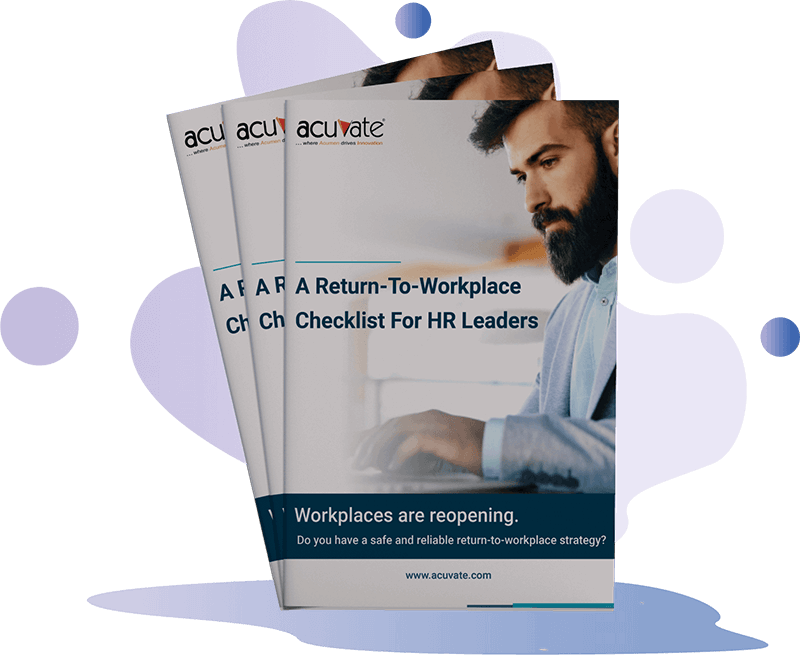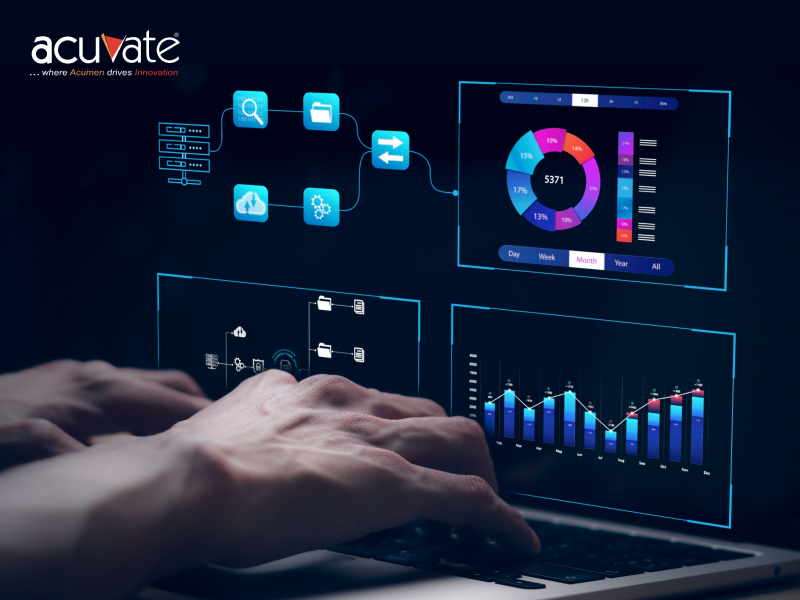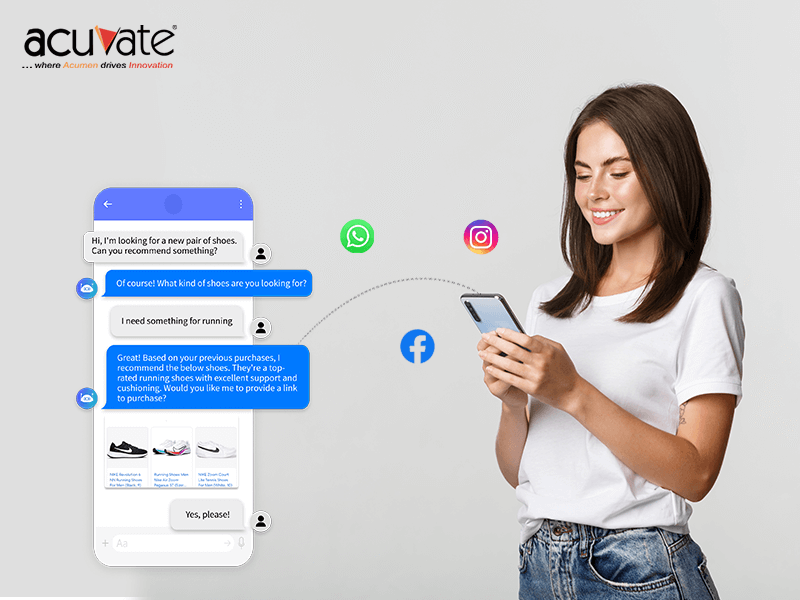COVID-19 has been instrumental in highlighting the importance of having the right technology systems in place to deal with unexpected market changes. As the pandemic sweeps across all quarters with an unreckoned force, enterprises are grappling to keep operations going while dealing with mounting pressure to keep costs low. It’s no surprise then that CXOs are increasingly considering the long term adoption of a remote work model and renewing their focus on digital transformation.
Interestingly, COVID-19 is only accelerating digital transformation trends that were already in place, even before the pandemic – offering businesses the impetus to take the plunge into technologies they may have considered before, but not adopted yet – the most prominent being, Artificial Intelligence (AI)
COVID-19 drives AI adoption
A discussion on Artificial Intelligence (AI) and the push for its adoption across industries and geographies is not new. While most businesses do leverage automation and basic data analytics for various business functions, they have not yet fully embraced AI which equips machines with the capability to solve problems and implement actions that were originally only in the purview of a human.
With the onset of the pandemic and the resulting transformations, businesses are circling back to the discussion on AI with a fresh perspective.
From a business perspective, what potential does AI hold?
The economic impact of COVID 19 has undoubtedly been largely disruptive. The new normal it has created has left businesses reeling under growing pressure to mitigate costs, optimize operating models, and maximize ROI. AI has a significant role to play in helping businesses achieve these goals and seize competitive advantage.
AI offers a unique opportunity to businesses of all sizes – startups, SMBs, and large enterprises to drive digital transformation across their critical business functions across various industries like healthcare, retail, CPG, oil and gas, manufacturing, and financial and banking services etc.. Most importantly, however, AI/ML offers a chance at innovation that just might be the game-changer businesses need to survive the crisis.
Let’s take a look at some critical ways organizations can leverage AI amid the COVID-19 pandemic.
1. Track Changing Consumer Behaviors
COVID-19 has certainly caused drastic mutations in consumer behavior – the impact of which has been felt directly on revenues. More and more people are choosing to shop online for all their needs and are avoiding venturing out into public domains. Concerned about the hygiene standards and transmission of the virus, the online commerce pool is only going to get more crowded. With lockdowns starting to be lifted in various countries, businesses are shifting to recovery mode, they will have to prioritize understanding and catering to new customer preferences.
AI-driven solutions can analyze data from an extensive list of sources to extract insights that will help businesses have an early mover advantage of understanding emerging trends and changes in consumer preferences, which can then be harnessed to reignite top line growth.
Consumer behaviour insights delivered by AI technologies like ML and advanced analytics are key for marketing and sales teams to measure and optimize their advertising and campaign strategies. We’re helping customers achieve this by building custom PowerBI reports for sales and marketing teams. The solution helps your track shifts in consumer behavior and identify the most profitable SKUs.

2. Crisis Communications & Remote Work Support
It’s worth noting that many companies didn’t consider work from home feasible and conducive to business outcomes prior to COVID-19. But with the onset of the pandemic, business leaders everywhere had to take the tough and instant decision of rolling out extensive work from home policies almost overnight.
AI can play a key role in enabling effective remote work models. AI-driven companies tend to focus on agility and efficiency, and as such, are better suited to finding success with remote working.
Innovative technologies like chatbots also offer tremendous potential to businesses looking to adopt long term work-from-home models. Chatbots are cost-effective, easy to implement, and offer a variety of use cases across multiple business functions – including crisis communications, answering FAQ, agent support, internal communications, and remote work support. As a result, more and more businesses are readily adopting and using their conversational interfaces in a variety of ways to navigate the pandemic.
We’re helping customers leverage low-code bot building platforms like Power Virtual Agents and BotCore to deploy crisis response chatbots within 2 weeks.
Learn More: How Chatbots Are Helping The Fight Against The COVID-19 Crisis

3. Manage Supply Chain Disruptions
Leveraging advanced analytics enables businesses to rapidly analyze internal and external sources of data to tackle supply chain disruptions. They generate predictive and prescriptive recommendations and forecasts that are valuable in building a resilient supply chain. Here are four primary use cases to consider:
- Demand Forecasting
Businesses can leverage AI to obtain an in-depth understanding of how demand will shape up during and after the pandemic. This requires analyzing multiple data sources, including: point of sales, online search, competitor data, and local pandemic variables such as government regulations, new cases, and death toll etc.
- Improving Stock Visibility
Inventory overspend can be eliminated by equipping supply chain teams with data to make accurate purchasing decisions and product replenishment’s. A unified database which provides demand visibility across channels is pivotal to gleaning these critical insights.
- Mitigating Out of Stock Situations
Ensuring product availability and reducing out of stock situations is a critical goal for supply chain leaders during these uncertain times. The team at Acuvate is helping Fortune 500 CPG customers build an AI-powered Out of Stock Dashboard that focuses on the most profitable SKU’s in terms of Total Dollar Value Impact. It helps users predict and identify the reasons for out of stock situations.

- Supplier Risk Analysis
AI can be leveraged to ensure continuous analysis and monitoring of suppliers’ financial state and ensure there are no disruptions for retailers.
Get Started
While some businesses have already introduced AI applications that are catered to navigating the current crisis, there is always the challenge of scaling them up. However, businesses that do take a strategic, future-ready approach to adopting AI will be able to better manage remote workforce, improve crisis communications, handle disruptions in operations and supply chains, allocate resources, and transform marketing strategies to adjust to rapid changes in consumer preferences and behaviours.
Interestingly, a Boston Consulting Group research indicates that, during the four previous economic downturns, 14% of businesses were able to increase both sales revenues and profits. Businesses that have already introduced AI in varying capacities will have an edge that other businesses will have to act fast to acquire.
Now, more than ever, it is critical for businesses to nurture their innovation strategy in order to drive immediate benefits, as well, as better position their business for the future. If you’d like to learn more about this topic, please feel free to get in touch with one of our AI & Crisis Management experts for a personalized consultation.




